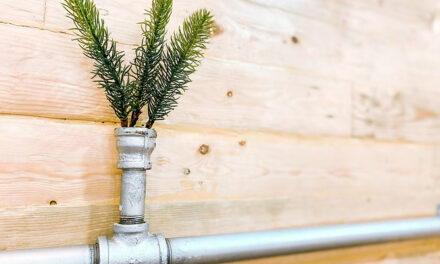Want to know what a Driveway is? What is paving? What is concreting? What is the difference between paving and concreting a driveway? What is a fence? What is the gate? What is the best time to install a driveway? What are the things you should know before installing a fence or gate? When should the fence be installed first? What are some different types of fence materials available in the market? What are some things you need to know before installing a driveway? When should the driveway be installed first? When should the driveway be installed after a fence or gate?
These are some of the key questions people ask when they are not sure about the driveway and fence. I, too, was confused at one time so, I did a little deep dive into the questions mentioned above. So, if you too are not sure and want to know about driveways and fences, and mainly which should come first during the constructions, then you have come to the right place.
In this article, I am going to be discussing all of the above questions, along with several other things that I found along the way of my property development
career. Before anything, let’s define a driveway and a fence.
What is a Driveway?
Before continuing further, let’s discuss what a driveway is.
A driveway is a type of a short road. A driveway may be owned by an individual or a group of people. It leads to personal property such as a house or a building. The purpose of a driveway is to park the cars on it, so, the main road is left clear of the traffic. A driveway also enhances the outlook of the property. It makes the whole property look aesthetically appealing.
There are many different types of construction material available for installing a driveway. You can choose the one you like considering a few key factors which I will discuss later in this article.
What is Paving?
Paving is a type of installation material for a driveway. There are many options in the market for paving materials. In paving, the material is laid down on a surface. It is done to create a hard surface.
What is Concreting?
Now let’s discuss what is concreting.
Alongside paving, concreting is also a popular choice. In concrete, the whole surface is constructed with a hard concreting material.
Paving vs Concreting a Driveway
1. Paving of Asphalt
Asphalt is a type of paving material.
Following are some of the basic features of paving:
- Tar is an adhesive binder is Asphalt paving. The whole process is inexpensive compared to concrete.
- It is also easy to install.
- The maintenance process is also not difficult.
- The whole Surface dries out after a few hours so, you can easily walk on it.
- Most of the time, the installation cost of asphalt paving is less than that of concrete.
- Asphalt paving requires washing at least two times in the year.
Tip: This article covers how to raise capital for your developments.
Suitable for Cold Weather
Generally, Asphalt paving is more popular in the snowy regions as compared to the hot areas as it works well with the snow. The black surface of the asphalt absorbs the heat and melts the snow from the surface of a driveway.
Best Season for Paving
The paving of the driveway depends on the type of material you are using. In the case of paving, the spring season is the ideal season. As the temperature of spring is neither too hot nor too cold, which makes mixing the material easier. This results in a smoother surface that lasts a long time.
Of course, you can also pave your driveway in the winter season. But, It is going to be very difficult to manage the construction process. As the top surface will take a lot of time to dry out.
You will also need a very capable installer who can foresee the problems beforehand.
2. Concreting
Now let’s see how concreting is different from paving.
Following are some of the features of concreting:
- The initial cost of concreting the surface is much more expensive from paving.
- It is a very difficult process.
- The surface takes a lot of time for drying out so you cannot walk or drive on it for a few weeks. Otherwise, dents will appear on it, which will cause the cracks to appear on the surface.
- The concrete driveway looks more attractive as compared to paving because there are many different designs available. However, basic regular concrete surfaces are dull looking.
- The concrete requires resealing every 5 years, but the repairing cost is high.
- In case of a single crack, you may have to take out the entire concrete slab (or section) and replace it with another one.
Tip: You should do these things after the concrete is poured.
Suitable for Hot Weather
For rainy
and snowy areas, a concrete driveway is not suitable. The surface becomes slippery because of rain and the snow is also very difficult to clean from the surface. That is why concreting is suitable for hot weather. It reflects the heat from the surface. Keeps the surface cool.
Best Season for Concreting
What you want to avoid when concreting is extremely hot and cold weather. Many things can go wrong when the weather extreme is. So, the best time for concreting is the Fall season. When the temperature is neither too hot nor too cold. Because, if the weather is too hot then the top will dry out before its time. The bottom layer of the concrete will not be strong. This will directly affect the durability factor of the material. In winter, cracks can appear in the concrete.
Now, let’s cover the fences and gates.
What is a Fence? What is a Gate?
A fence is a type of structure that works as a barrier. It is a structure that is used for several purposes such as maintaining the privacy, keeping the property secure, and keeping the animals from going outside of the property.
There are many different types of fence materials available in the market. The type of fence you will install will depend on the reason for which you are using the fence.
On the other hand, a gate is an entrance to a property. A gate can be opened or closed while the fence is not supposed to move. It remains fixed in the same place.
Tip: Have you heard of no-dig fencing options?
When Should You Do the Driveway Before Installing the Fence/ Gate?
In this paragraph, I am going to discuss when should you pave the driveway before installing the fence.
There are many reasons when the driveway should be paved before installing the fence. These reasons are mentioned below:
- When the heavy machinery is required for paving the driveway. Because, if the fence is already installed, the machinery will not be able to reach the driveway.
- When you want a space for your car to be parked.
- If the paving contractors need extra space, then paving should be done first, too.
What To Do First? Should You Install the Fence or the Driveway First?
It depends on you and individual circumstances of the land. Then, what suits you and your contractors the best. Whether it is a matter of installing a driveway or a fence first, ask both of the contractors about their preferences and reasons for them. Weigh the pros and cons of both. Then make the decision.
When Should You Put the Fence Before Installing the Driveway?
In this paragraph, I am going to discuss the reasons for installing the fence before paving the driveway.
There are many circumstances when the driveway fences should be installed before paving the driveway. These reasons are listed below:
- When the fencing process is messy, it should be done first.
- The fence will allow a nice space for paving.
- If the fencing will give a better picture of the levels and driveway needs.
- If the fencing company dug up some holes, they could be filled by paving easily.
Important Things to Remember Before Getting Your Driveway
There are many essential things that a person should know before doing any construction on the driveway. Some of these things are listed below:
- Purpose
Define your purpose for wanting a driveway. What do you need to use it for? Is it for parking or your car? Or for your animals. When the purpose of wanting a driveway is clear to you, then you can then make the decision about the type of material you wish to use.
In urban areas, the driveway is generally used for parking the cars. But in rural areas, driveways are usually used for heavy equipment such as tractors. They are also sometimes used by animals as well. So, the material you will choose will depend on how much weight you intend to put on your driveway.
- Area
Decide about the area. Allocate that chosen area for the driveway. See what suits you best. Whether you want a big or a small driveway will be determined in this step. The area will also help you in setting your budget for the whole process.
- Budget
Having a budget will make a difference. You will know beforehand how much you are going to spend on a particular project. So, you must set your budget before anything else. When you are done doing that, then you can ask for the quotations and select what is in your budget.
- Getting a permit
Go to your local Council and ask whether the type of driveway you are building will require a permit. The local council has Laws regarding the type of material you can use. Check with them. It will save you any trouble; otherwise, you meant face later on.
- Installer
Choosing the installer is a very crucial part. The success of the whole process depends on it. Because a good installer guarantees a good job. Don’t rush when choosing. Another important thing, don’t select an installer because of low rates, because when installing the driveway you will get what you pay for. So, choose correctly and make a wise decision.
Note: An installer could also guide you about getting the permit.
- Maintenance
When choosing the material, you should also know whether you can maintain it. If you don’t mind the maintenance aspect, then you can choose any type of material you like but if you are not high maintenance, than you should choose a material that requires low maintenance.
Types of Driveway Materials
Following are some of the common driveway materials that are available in the market:
- Asphalt
- Cobblestone
- Brick
- Gravel
- Basalt paver tiles
- Grass driveways
Important Things To Remember Before Installing a Fence
I have listed some of the important things that you need to remember before installing a fence.
- Why do you want it?
Determine the reason for wanting a fence. Some people get it because of the security reasons, some for privacy. When you know the reason for wanting a fence, then you will know what type of material you want to use.
- Cost
Plan your budget. How much you want to spend on the fence. Setting up a budget beforehand will really make the whole process of installing a fence a tad bit easier. You can then ask for the quotes.
- Permits
Like the driveway, the fence also requires a permit for installation. You have to go to the local council and get the permit to start the project. Ask your neighbors, if they know about local requirements for a fence. They can guide you about the laws regarding the fences.
- Property line
You have to know where your property starts and ends. Because we don’t want to build a fence on neighbor’s property, right? So, check your property line and then get the measurement.
- Installer
Choose your installer wisely. It will determine how your whole project will turn out.
Common Fence Materials
The following are some of the common fence types.
- Vinyl
- Electric wire
- Aluminum
- Wood
- Bamboo
- PVC
Conclusion
I am summarizing all of the above things here some key points you need to remember. Driveways are an excellent investment. They are a great addition to your property. But when you are choosing the material, go for the one that is suitable for the area you live in. Same with the fence. First, determine your reason for wanting a fence then choose the type of material that is the best suitable for your purpose. When you are confused about whether you should install a driveway or a fence first, look at all the factors. Have a discussion with your installers. Come to a single page. Don’t panic. Make the right decision.






